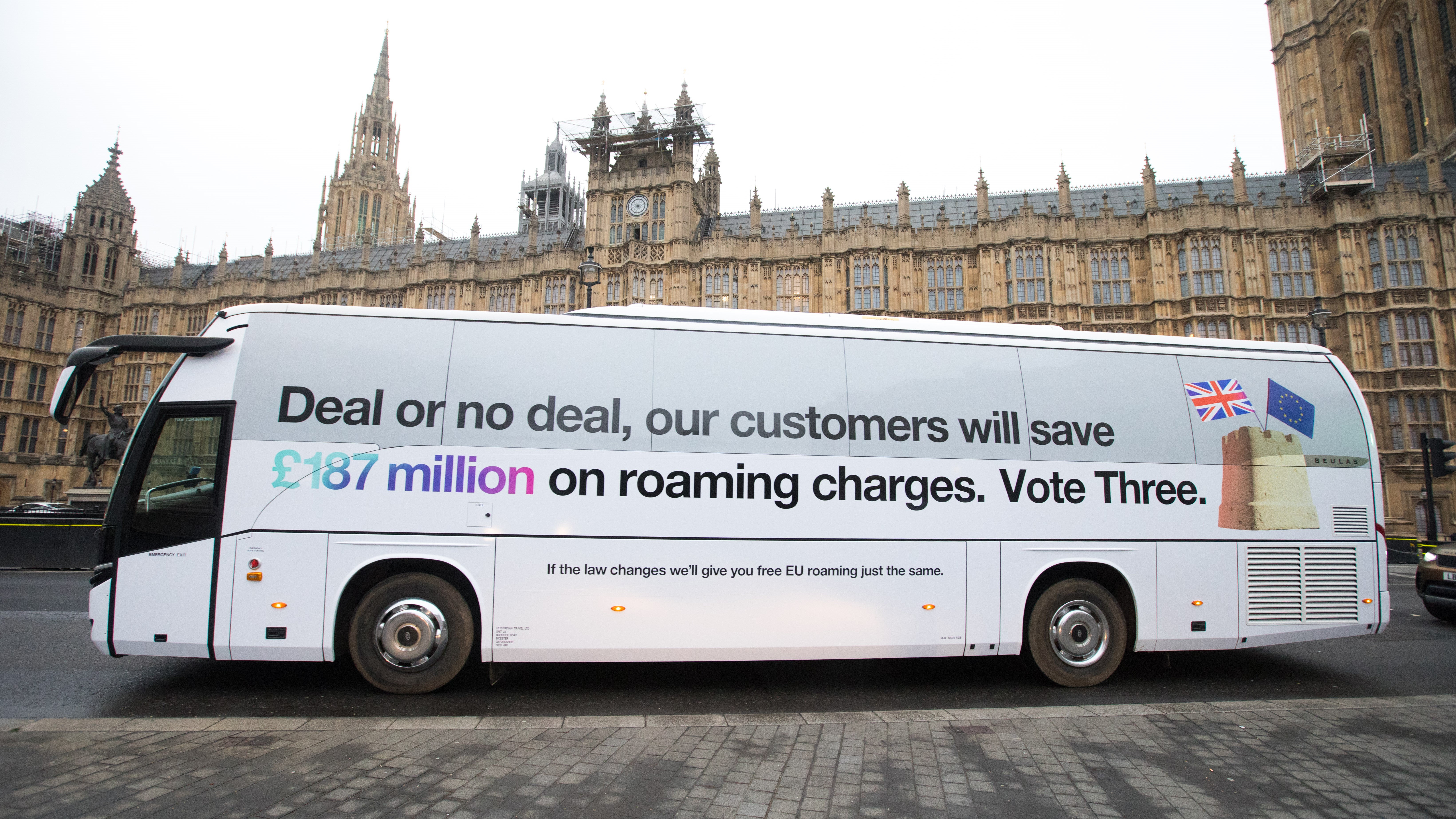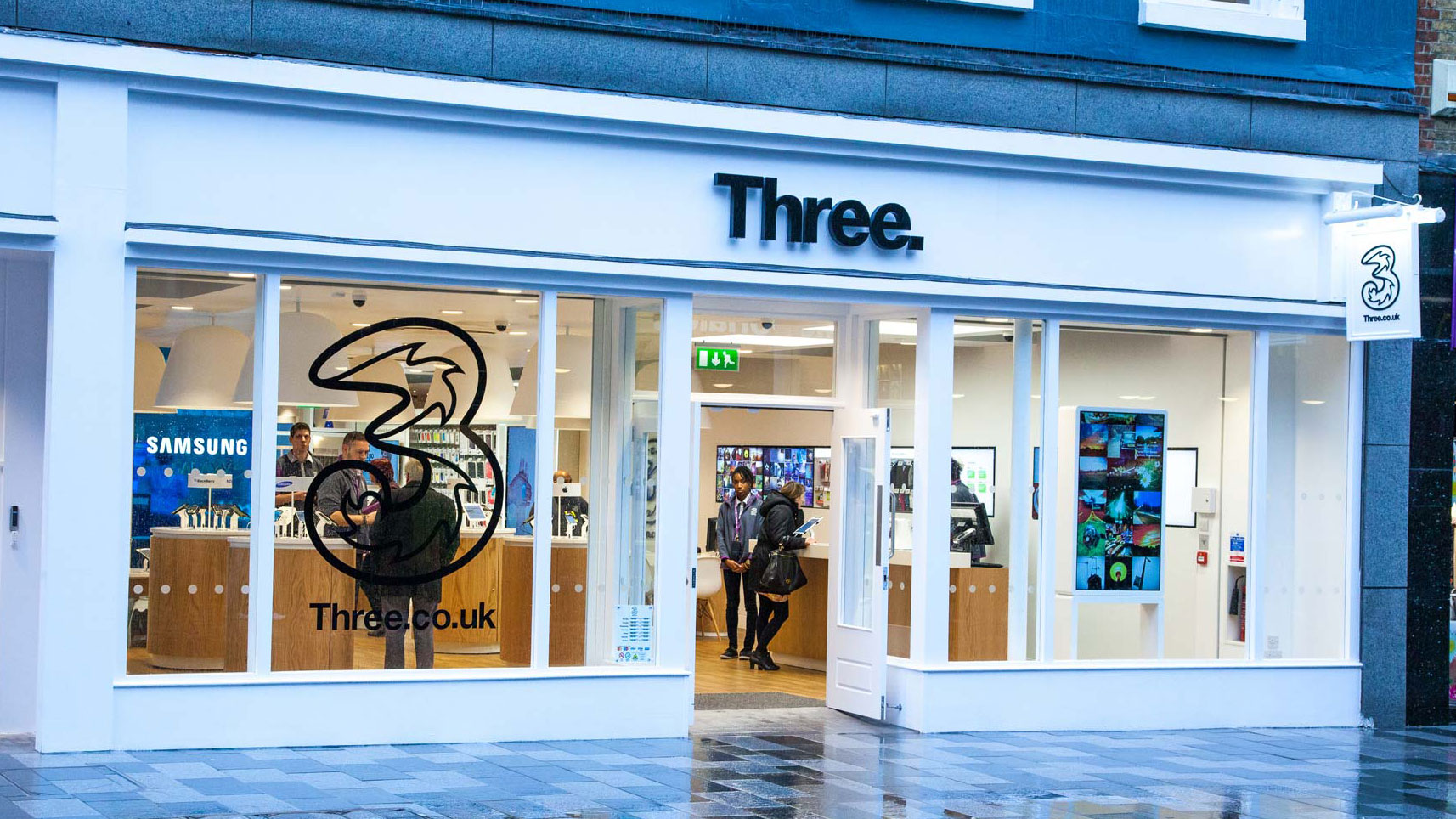Three's EU roaming charges mark end of an era
Three normalised the idea of using your phone abroad but now customers will have to pay

Sign up for breaking news, reviews, opinion, top tech deals, and more.
You are now subscribed
Your newsletter sign-up was successful
In 2017, I switched mobile operators for the first time. I’d been with T-Mobile and EE for more than a decade, but its roaming deal at the time was vastly inferior to Three’s ‘Go Roam’.
Three first launched its offer back in 2013, allowing customers to use their voice, text, and data allowances in 7 countries – a number which eventually swelled to 71 through wholesale deals and EU legislation.
It truly was a game changer and as a journalist that frequently travelled to the US and Europe for work, it was a very attractive proposition. This anecdote is not intended to be self-indulgent but rather to illustrate how Three used roaming to create a competitive advantage and entice its competitors’ customers to jump ship.
- These are the best business SIM-only deals around today
- And the best business broadband deals
- Here are the best business mobile phone deals
Three EU roaming
The company has positioned itself a challenger brand ever since its inception and roaming was a core part of its recent identity. It was one of the key messages behind its high profile ‘Make it Right’ marketing campaign starring Jackson the Puppet and the company was proud of the fact that it had saved customers “millions” as a result.
So, the news that it is reintroducing charges both in the EU and elsewhere, is quite the U-turn.
In the months and years after the EU referendum, all four mobile operators repeated the line that they had no plans to reintroduce charges. As recently as 2019, Three sent a bus adorned with a message that it would safeguard EU roaming even in the event of a ‘no deal’ Brexit to the Houses of Parliament.
However, one-by-one, all four have altered their position since the end of the transition period at the start of 2021. In June this year, O2 and Three imposed data caps while EE introduced a range of add-ons. Vodafone said it had no plans to follow suit but changed its tune by August.
Sign up to the TechRadar Pro newsletter to get all the top news, opinion, features and guidance your business needs to succeed!
Now, Three will charge customers £2 a day to use their phone in the EU and £5 anywhere else. This leaves O2 as the only operator not to charge fees for EU roaming – for the time being.
The reasons behind the reintroduction are obvious. Operators within the EU are no longer obligated to provide regulated wholesale rates to their UK counterparts while the pandemic has meant roaming income from countries outside the EU has all but disappeared.
Combined with the need to invest in 5G infrastructure at a time when traditional revenue streams are being squeezed and the ability to charge for roaming within the EU suddenly becomes very appealing.

End of an era
“We know that Go Roam has always been important to our customers, and we had hoped to retain this benefit, but unfortunately there are now too many unknowns, which has made it commercially unviable for us to continue,” said Three.
“This includes variations to the underlying cost of roaming, meaning we now have no visibility over the maximum amount it will cost us to provide a service for our customers to use their phone while abroad.
“We are investing billions of pounds in improving our network and infrastructure and already offer some of the most cost-effective deals on the market – implementing a separate roaming fee will enable us to continue to do this.”
Despite the commercial realities of the situation, the development is hugely disappointing from a consumer perspective given Three’s previous statements on the matter.
The operator could hardly have been expected to predict a global pandemic, and there has been a change in leadership since the bus incident, but the uncertainty surrounding Brexit has been constant for the past five years.
The failure or unwillingness of the UK government to include roaming in Brexit negotiations is not mobile operators’ fault, but it wasn’t unexpected.
Of course, EU legislation has nothing to do with many of the 71 ‘Go Roam’ destinations outside Europe. Nor does it impact territories where Three's parent CK Hutchison actually owns mobile networks and formed the bulk of the original countries covered by the offer.
TechRadar Pro has asked the operator for further reasons behind the decision and why it felt it was unable to reach or renew wholesale agreements.
It must be stressed again that Three is not alone in changing its policy, but none of its competitors placed such importance on it. The obligation on customers to pay for something they had been accustomed to will be a huge blow and it will be interesting to see if it has any impact on churn.
That's not to say Three’s legacy should not be ignored. The original ‘Feel at Home’ offer was truly transformative for the industry, helping to normalise the idea of using phones abroad – years before EU legislation came into effect.
Previously, many consumers would either turn their phones off or frantically switch off data access on their device the second the plane wheels hit the tarmac, such was the fear of extortionate charges. The market has been disrupted positively.
Roaming is far cheaper and less complex than it was back in 2013 but it remains to be seen what comfort that will provide the next time Three’s customers go on holiday.
- Here are the best Three mobile phone deals
Steve McCaskill is TechRadar Pro's resident mobile industry expert, covering all aspects of the UK and global news, from operators to service providers and everything in between. He is a former editor of Silicon UK and journalist with over a decade's experience in the technology industry, writing about technology, in particular, telecoms, mobile and sports tech, sports, video games and media.